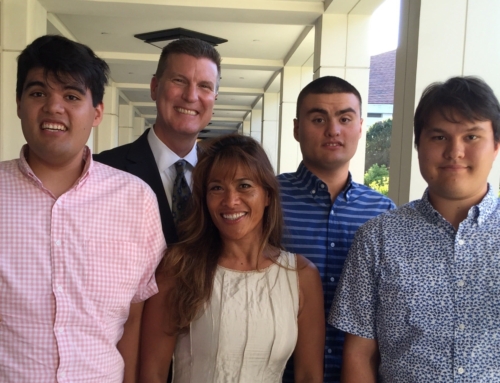Flattening the Church Curve

Our ministries, like our medical system, usually operate under a fairly “flat curve.” Everyone will need help at some point, but very rarely does everyone need help all at once. For both medical services and churches, there are two ways of flattening the curve: decreasing the number of people who need help or increasing the number of people who can provide help.
The good news is that being in need in one area does not preclude someone from offering assistance in a different area. During this COVID-19 crisis, churches have the opportunity to empower their congregations for ministry like never before.
What kind of help might people need or provide during this coronavirus quarantine?
1. Practical Help: Generous helpers and faithful workers.
These are perhaps the most obvious, pressing types of needs. Emotional needs get put on the backburner when nature calls and there’s no toilet paper.
Urgent practical and financial needs tend to eclipse other concerns.
For families who carry heavy burdens under normal circumstances (such as families affected by disability), the added burdens that come with a worldwide pandemic can carry the weight of an elephant sitting on your chest. During a time of unprecedented unemployment, health concerns, and economic anxieties, making it easy and OK to ask for help are the first steps toward understanding the scope of the needs in your community.
Consider ways to access the needs of those around you. This printable form from Ability Ministries can help families who may be overwhelmed by needs, identify clear ways they can ask for help. The form can be distributed online or left on the doors of neighbors, extending the love of Christ beyond the walls of our churches and homes. With a list of real needs, practical help like providing meals and running errands can be easily organized and fulfilled using sites like Meal Train or Lotsa Helping Hands.
Closing your church doors temporarily does not mean that the church is not alive and well.
It’s not a time to bemoan the fact that we can’t go to church; it’s a time to be the church.
“Suppose you see a brother or sister who has no food or clothing, and you say, ‘Good-bye and have a good day; stay warm and eat well’—but then you don’t give that person any food or clothing. What good does that do? So you see, faith by itself isn’t enough. Unless it produces good deeds, it is dead and useless (James 2:15-17, NLT).
2. Emotional and Spiritual Help: True friends and loving shepherds.
Physical needs can impact our emotions, but our emotional well-being can impact our physical health, as well. When we are alone, we are vulnerable.
God’s word tells us why community is important.
When we are in community, “if either falls, his companion can lift him up; but pity the one who falls without another to lift him up. Also, if two lie down together, they can keep warm; but how can one person alone keep warm? And if someone overpowers one person, two can resist him. A cord of three strands is not easily broken.” (Ecclesiastes 4:10-12, CSB)
Recent government studies[1] back up one of the first things the Bible says about humans, “It is not good for man to be alone” (Genesis 2:18, NLT).
A season of self-isolation and social distancing does not mean that community is impossible. It just means that it’s going to look a little different. Technology, old and new, can be used to remind people that they are not alone.
The body of Christ does not need to be gathered in the same room to remain united.
A phone call, a text message, a video chat, or a handwritten note can make a positive impact on the emotional and physical well-being of someone in your community.
Personal contacts can go a long way towards keeping spirits high and emotions healthy, especially for those with special needs who may struggle to grasp why their normal routines and rhythms have been disrupted.
Who can you reach out to?
As pastor and author Tim Keller puts it, “There are some needs only you can see. There are some hands only you can hold. There are some people only you can reach.”

3. Resting Help: Be worshippers.
With all the uncertainty and potential anxiety related to our current environment, God is still calling us to rest in Him.
When the world is in chaos, it’s tempting to grab the wheel and seize control of what you can.
Stockpiling toilet paper, hand-sanitizer, and facemasks are all symptoms of this deep-seated desire to control the situation. In a panic, we clutch at anything that helps us feel like we are in the driver’s seat.
But the reality is not that we have lost the control we previously had. In truth, control has always been in God’s hands alone.
“How do you know what your life will be like tomorrow? Your life is like the morning fog—it’s here a little while, then it’s gone”
James 4:14 (NLT)
That’s why God calls us to rest in him. The opposite of anxious activity isn’t inactivity. It’s why long flights, drives, or waiting rooms don’t energize us, but often drain us. Resting is a verb. With so many of us being forced to slow down, this is an opportunity to learn what true rest looks like. Rest may be more time to read God’s Word, pray, connect with family and friends, play a game, or cook a meal together.
Jesus says, “Come to me, all of you who are weary and carry heavy burdens, and I will give you rest. Take my yoke upon you. Let me teach you, because I am humble and gentle at heart, and you will find rest for your souls. For my yoke is easy to bear, and the burden I give you is light” (Matthew 11:28-30 NLT).
We need to cultivate rest for our bodies, yes, but also rest for our souls.
We all have needs. Now, perhaps, our needs are more highlighted than ever. But we still have something to offer. The strength of the church, like the strength of the body, comes from the unity of its members. The strongest arms cannot lift effectively without a strong back. Legs cannot run without ankles. A tongue cannot speak without a jaw. We are both dependent and supportive. While times of ease and plenty may mask that fact, crisis can shine a light on it.
The whole church body, working in unity, is, and has always been, essential.
Be the church today.
Written By—Ryan Faulk
Ryan Faulk works for Joni and Friends to equip churches in Southern California to evangelize and disciple people with disabilities. He is passionate about seeing churches reflect the heart of Christ for all people.
[1] https://www.nia.nih.gov/news/social-isolation-loneliness-older-people-pose-health-risks

Do You Have Questions?
Contact us at [email protected] or call (818) 707-5664. We’re here for you. Your ministry’s success is our highest priority!





